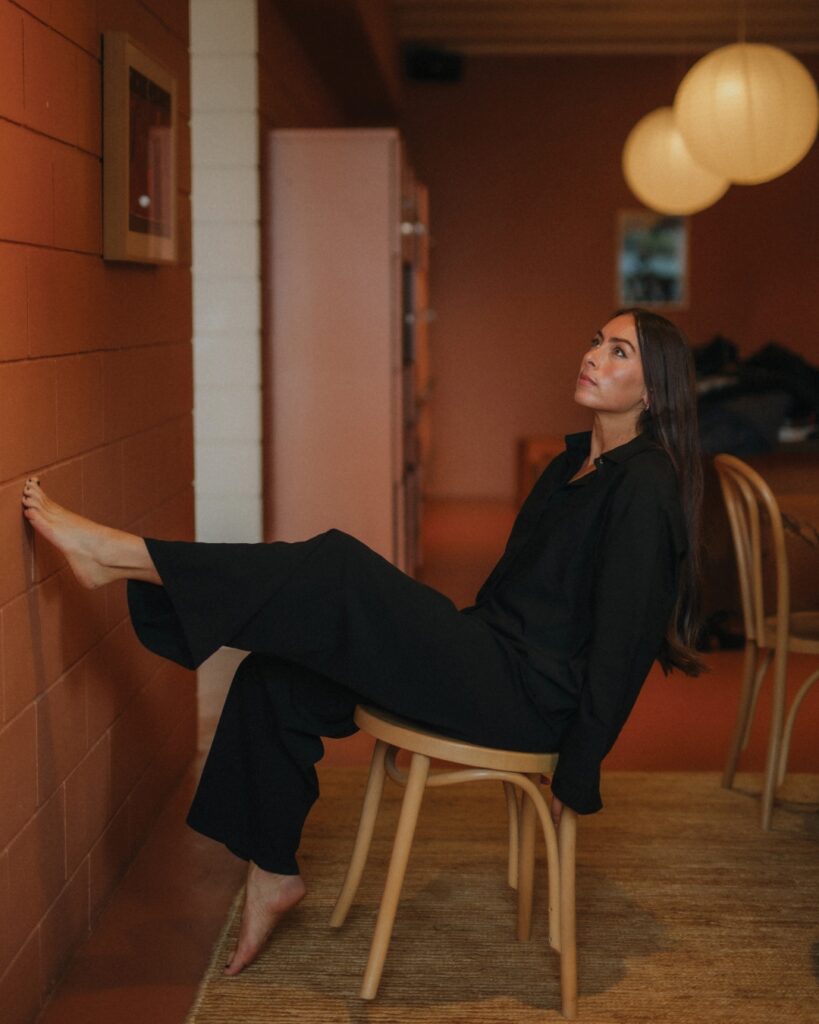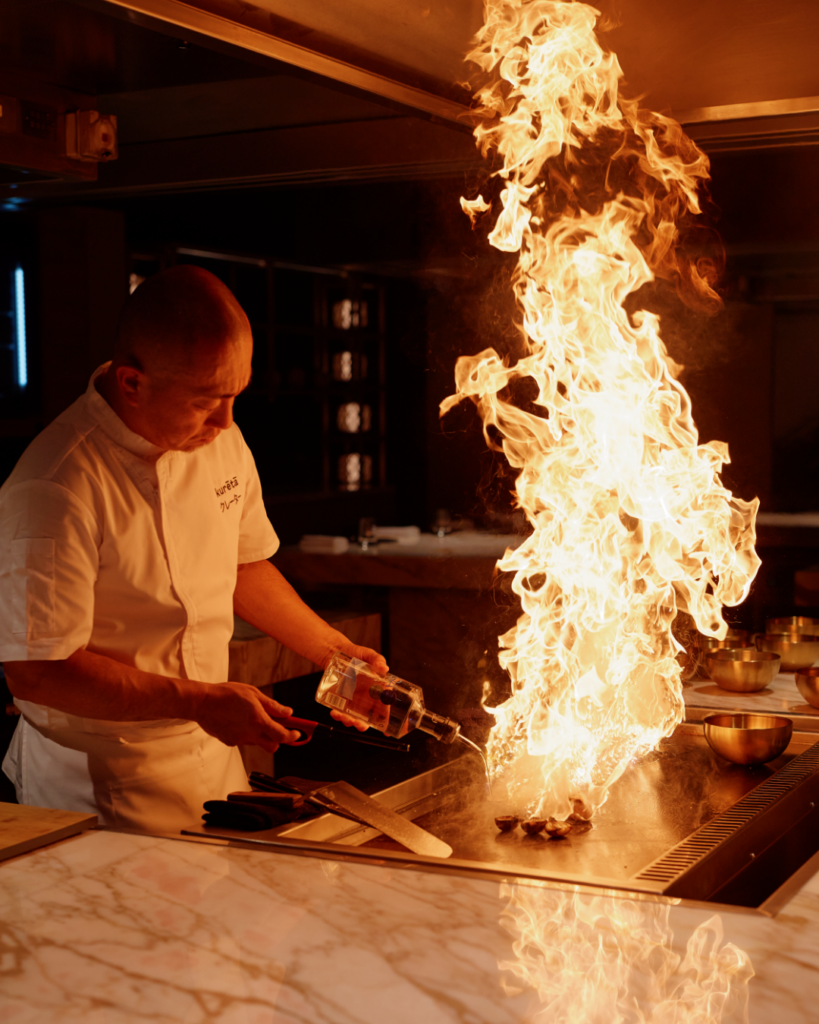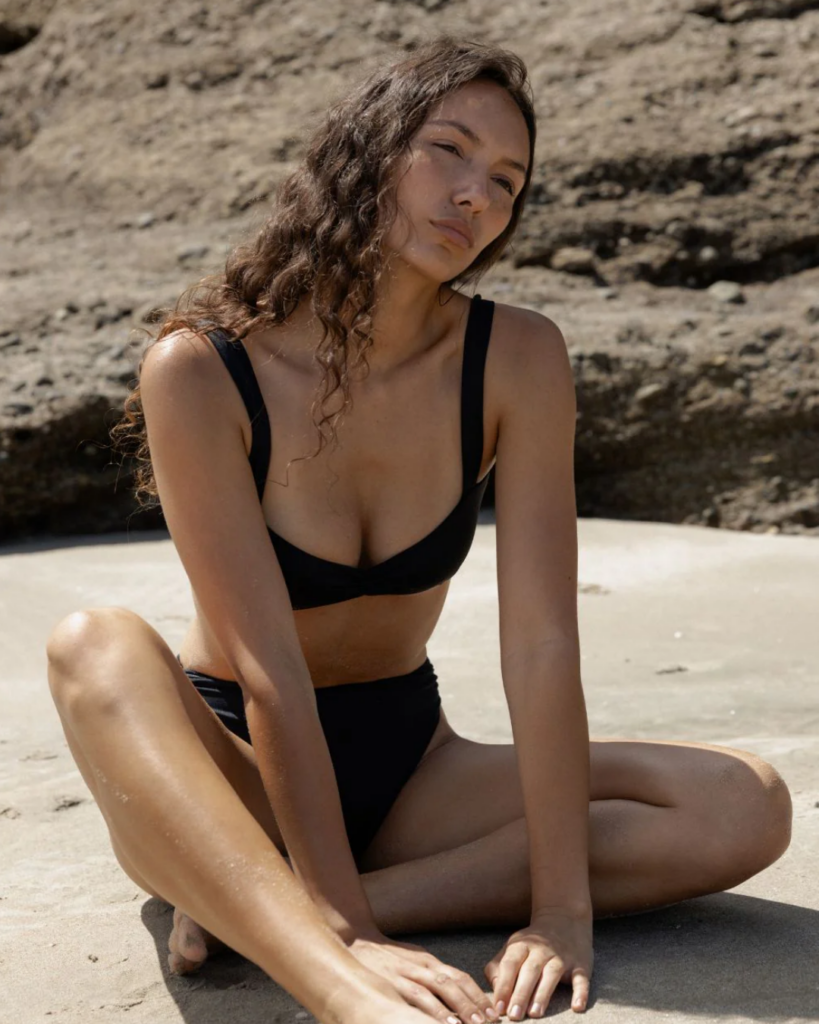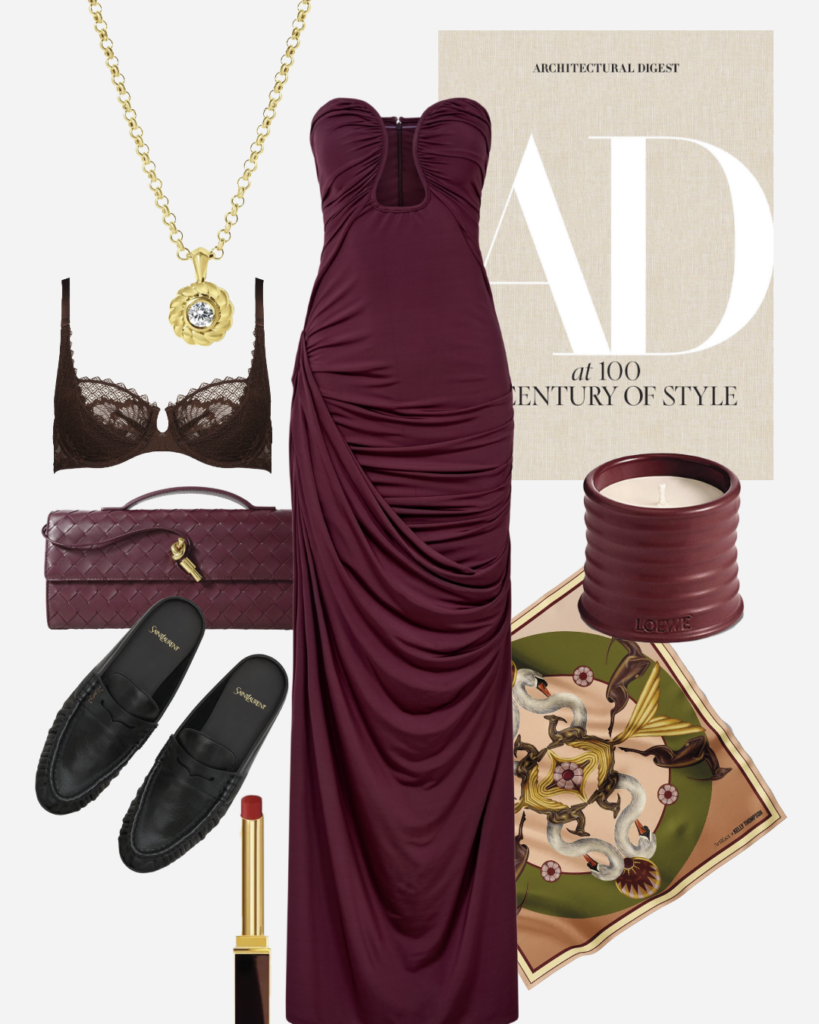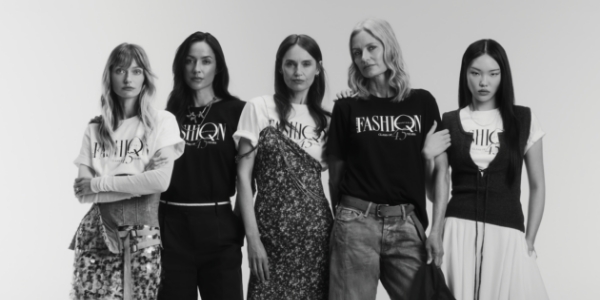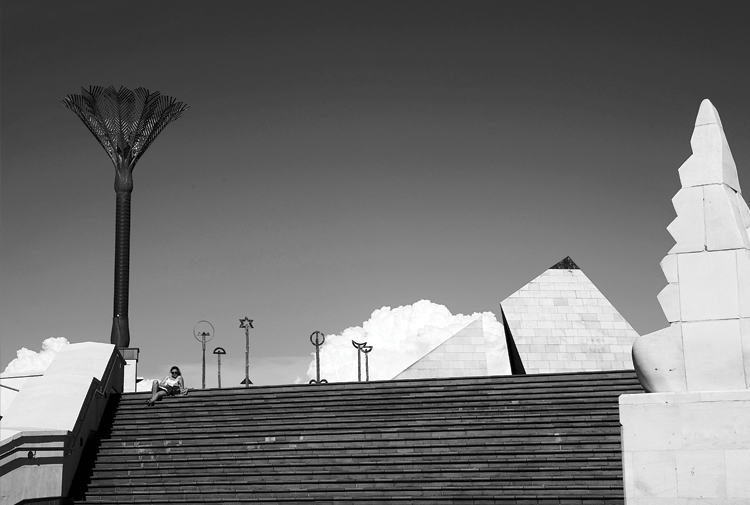
No longer just famous for being that place Orlando Bloom wore that Huffer T-shirt that time, Wellington is contributing much more to the New Zealand fashion landscape than ever before.
After interviewing three leading designers and consuming countless trim flat whites, our writer discovered a hub of creatives who thrive in the city’s community environment:
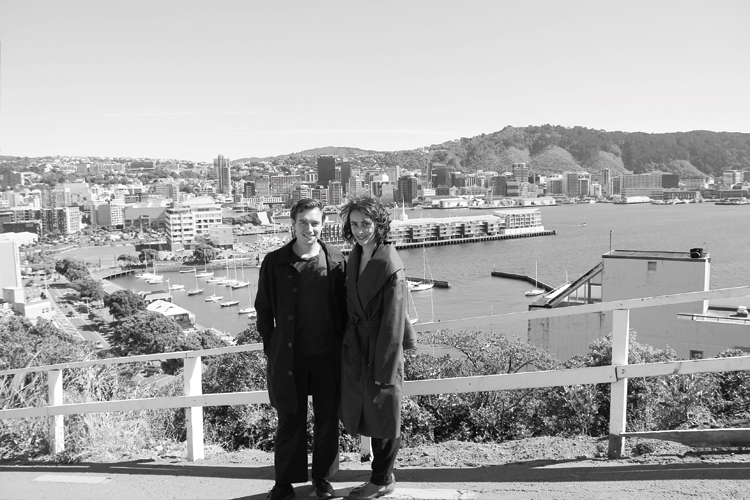
NICK AND NEVADA LECKIE
Okewa Rainwear
Okewa is very much a brand born of its environment, inspired not only by the Wellington climate, but the lifestyle. “The idea came to me a few years ago when I was working at the other end of the waterfront,” says Nevada Leckie. “It was a 40-minute walk and in winter it was a struggle because I didn’t have a good raincoat.”
Unable to find an adequate coat in stores, Nevada decided to put her fashion design degree to use and make her own. What started as pattern-making in her spare time soon led to Nevada quitting her job and focusing all her energies on making and testing toiles. Shortly afterwards she was joined by her husband Nick, who has a background in architecture, and the couple launched Okewa via Kickstarter in 2014.
The brand was quickly inundated with orders from as far away as Scandinavia, Mexico and Southeast Asia. “That was nice validation – that the story didn’t just resonate here,” says Nick.
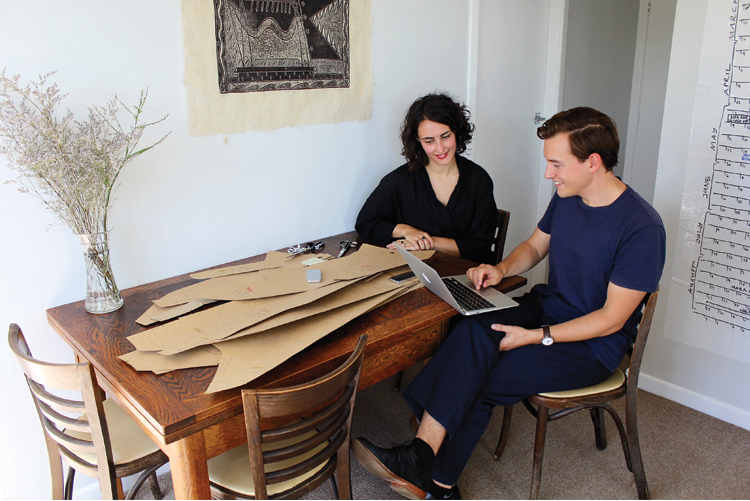
Auckland concept store The Shelter has just signed on to carry the brand’s winter 2016 range and, following on from the success of their Wellington pop-up store in 2015, there’s talk of an Auckland pop-up and, perhaps someday, pop-ups around the world.
Today, Okewa has a Morrinsville-based pattern maker and an Auckland-based fabric partner who imports fabrics from Japan. An Auckland manufacturer seam-seals the fabrics and produces the garments, while everything else – from design and dispatch to big-picture stuff – is done by Nevada and Nick in the front room of their cliff-side home on Oriental Terrace.
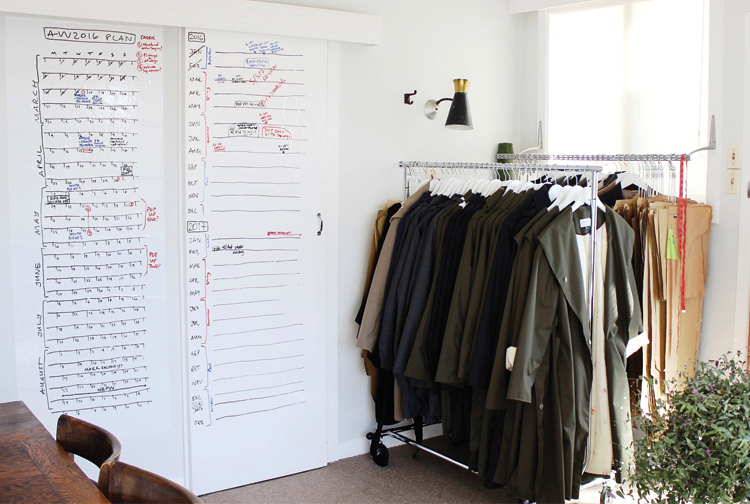
Wellington is the ideal testing ground for what is a highly technical product, says Nick. “It’s a compact city, so it’s a pedestrian city. Everyone is commuting everywhere on foot, stopping in at their favourite café along the way, and we want to accommodate that.
Our coats aren’t intended for someone who gets into their car in the garage and drives to their covered car-park at work.” From day one though, the couple’s thinking was that if they could get the waterproofing right for Wellington, “which is basically the windiest city on earth”, it was going to work elsewhere.
Nevada says the technical side of things has demanded a lot of upskilling. There’s much talk of fabrics being breathable up to 10,000 millilitres, or possibly millimetres (I couldn’t get my head around it). But I believe Nick when he says you’ll never get a drop of water through an Okewa coat. “At least for our uses. We’re not climbing Mount Everest.”
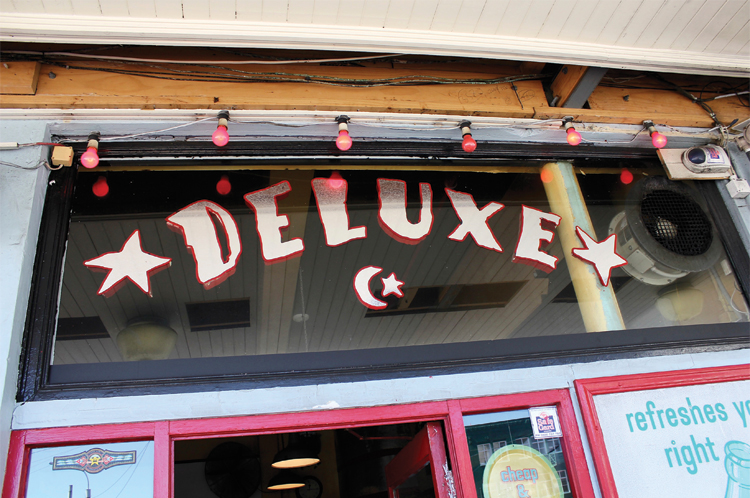
Instead, Nick and Nevada are living the life that the product has been designed to support. This includes walking along the Wellington waterfront, spending Sunday mornings at the Harbourside Market – “we are there rain or shine, that’s why we need the coats!” – and hanging out in cafés.
Deluxe Espresso Bar on Kent Terrace is a favourite. “It’s a bit grungier than anything down on Oriental Parade,” says Nevada.
“They scream your name out when your coffee is ready and you go up to the counter and get it yourself, it’s one of those classic Wellington experiences.”
Nick says it’s this unpretentiousness that makes Wellington such a great place to live. “And everyone here is so supportive,” he says. “People have been so forthcoming and willing to assist where they can. It’s a really collaborative community.”
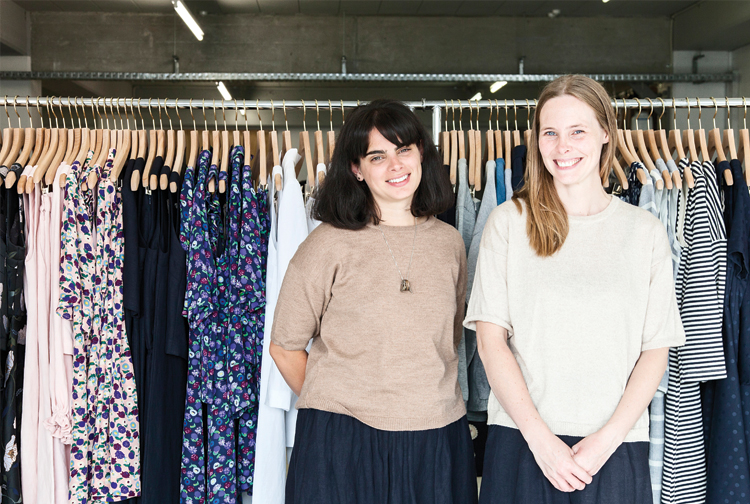
RACHEL EASTING AND ANJALI STEWART
Twenty-seven Names
On a guided tour of the inner city with Rachel Easting and Anjali Stewart, founders and designers of fashion label Twenty-seven Names, I get to experience Wellington’s community spirit first-hand.
“It’s a very small scene. So everyone is good mates,” explains Rachel. From their Ghuznee Street studio, they take me to Customs Brew Bar – home of celebrated Wellington coffee company, Coffee Supreme.
Twenty-four hours into my trip and I’m feeling a little over-caffeinated, so Anj suggests I try one of Customs’ half-size ‘little red cups’, and her local knowledge comes up trumps. My coffee is dainty, but not dilute.
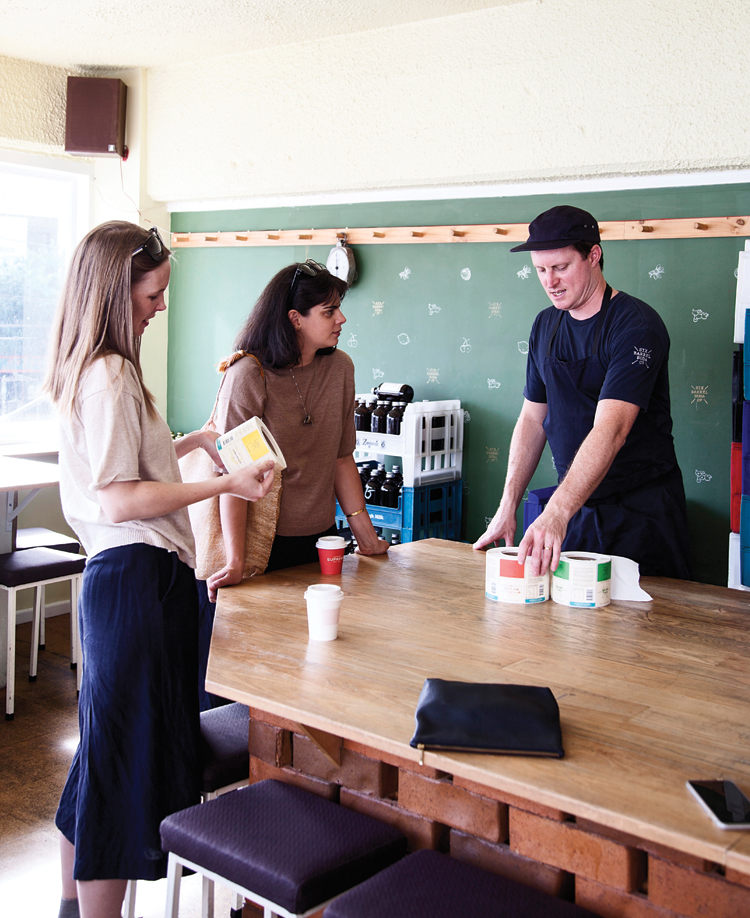
From there we head to Six Barrel Soda. “They’re another Wellington success story,” says Anj, explaining that Six Barrel’s products (including a coffee syrup made in conjunction with Coffee Supreme) are stocked in cafés and eateries all over New Zealand.
When we arrive, owner Joe Slater immediately stops what he’s doing at the soda machine to show the girls the new labels he’s been working on. They give their seal of approval in ‘oohs’ and ‘ahhs’.
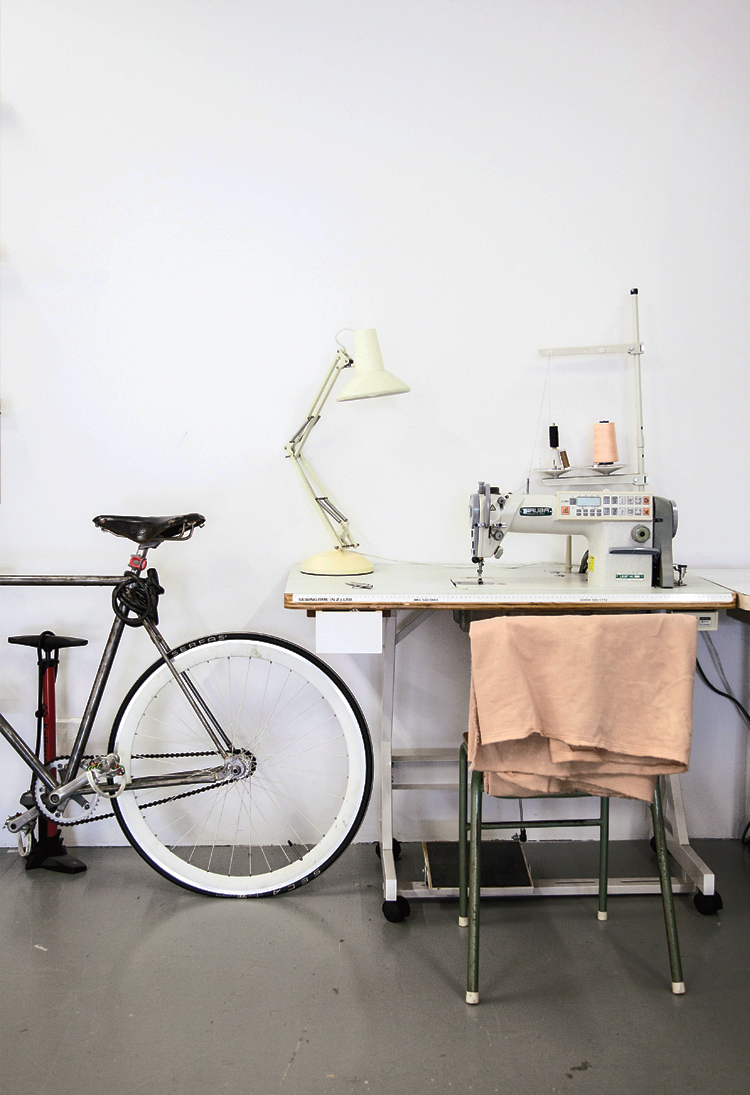
Back out on the street, Anj explains that relationships between Wellington business owners are bolstered by the fact that there are far fewer industry events to attend than there are in Auckland. “You don’t see each other every week,” she says. “So when you do catch up you’ve actually got something to talk about.”
With their schedules not overloaded with launches and lunches, Rachel and Anj have time to focus on the brand and the people and places that inspire them. City Gallery, where they take me next, is a big one for Rachel who did a Bachelor of Fine Arts at Otago Polytechnic (Anj did a Bachelor of Fashion at Otago).
The final artwork Rachel created for her degree was displayed at the gallery in 2007 as part of the then-annual Telecom Prospect exhibition. Now, she says, their exhibitions rotate every three months or so, “so we make sure we get down and see each one”.
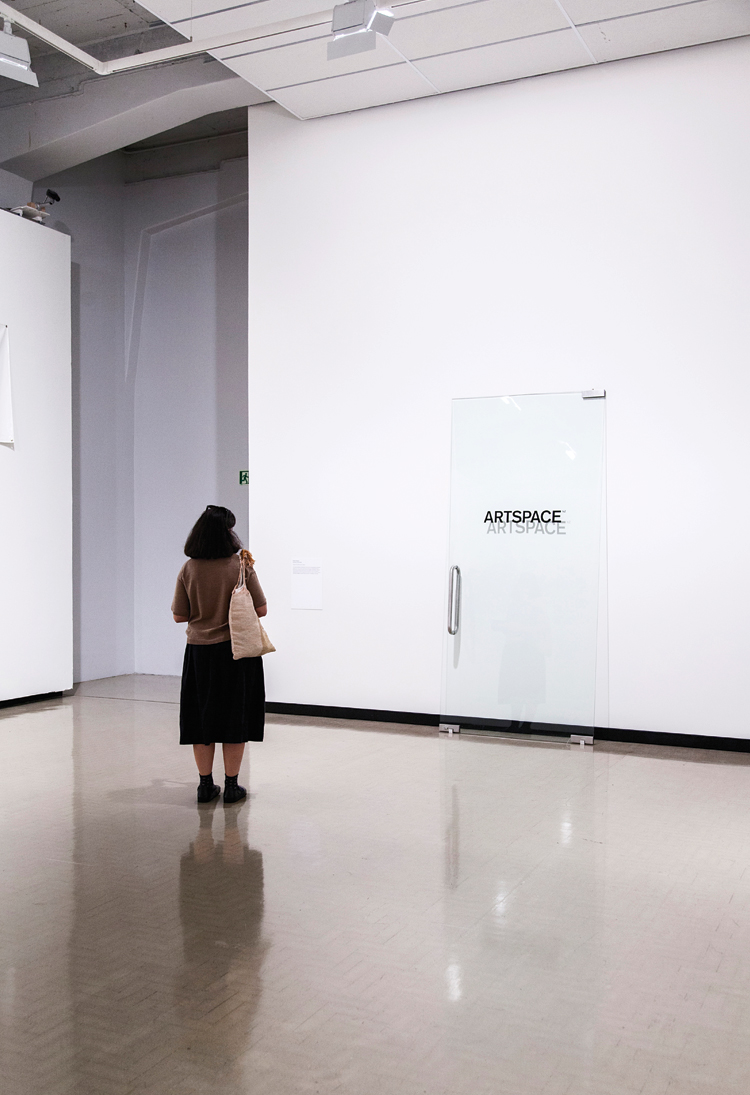
Come October, Rachel and Anjali will have been in business for 10 years. During that time, Twenty-seven Names has become a well-oiled machine, with two collections released each year.
The girls also opened their third retail store in Newmarket, Auckland, in March, and have plenty more projects in the pipeline – our morning together is fairly rushed as they’re flying to Sydney in the afternoon for a business meeting with a massive retailer.
With so much on the go, Wellington’s low-key vibe suits them perfectly. “We hibernate so hard down here,” says Rachel. “It’s really nice to be able to hunker down and not worry about what else is going on.”
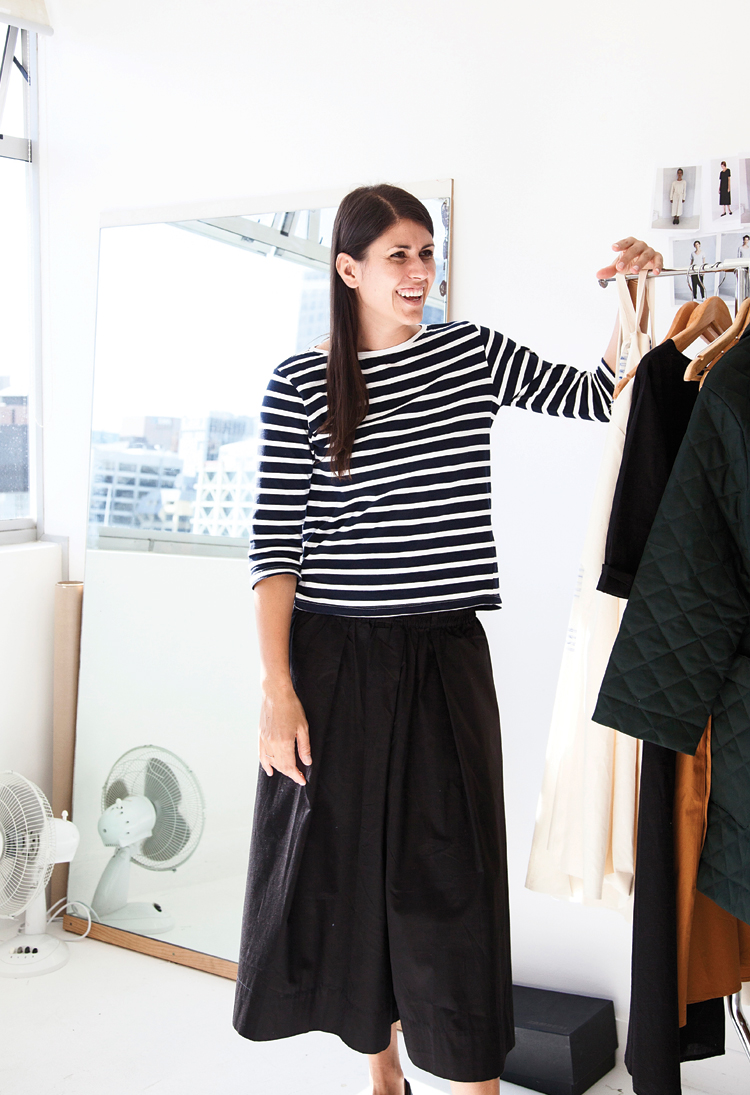
GOSIA PIATEK
Kowtow
The notion of Wellington being a great place to hunker down is a recurring theme. For Gosia Piatek, founder and creative director of Kowtow, it’s what keeps her here – for six months of the year, at least. “My partner is in London so I spend half my time there,” she explains. “And it’s full on. I like that in Wellington there’s less pressure to keep up with what’s cool or what’s in, you can just concentrate on your own stuff.”
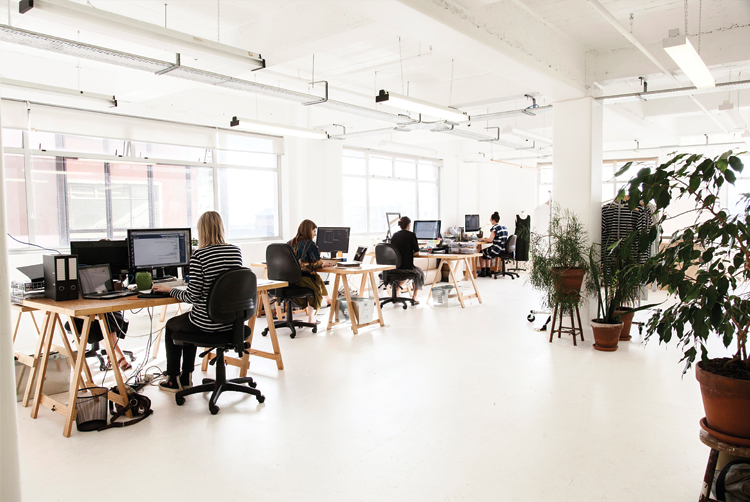
Not that Gosia doesn’t have her finger on the pulse – quite the opposite. When she started Kowtow with her ex-partner nine years ago, its staple offerings were loud T-shirts “with really offensive designs”, she says. But “fashion changed”, so she created a capsule collection of simple, monochrome pieces in a luxurious, cotton-jersey fabric.
“We immediately lost all our stockists,” she tells me. “They were like, ‘where is the colour, where are the prints?’” But when the range was picked up by Fabric in Auckland, and positioned alongside brands including Isabel Marant and Comme des Garçons, other high-end retailers came knocking.
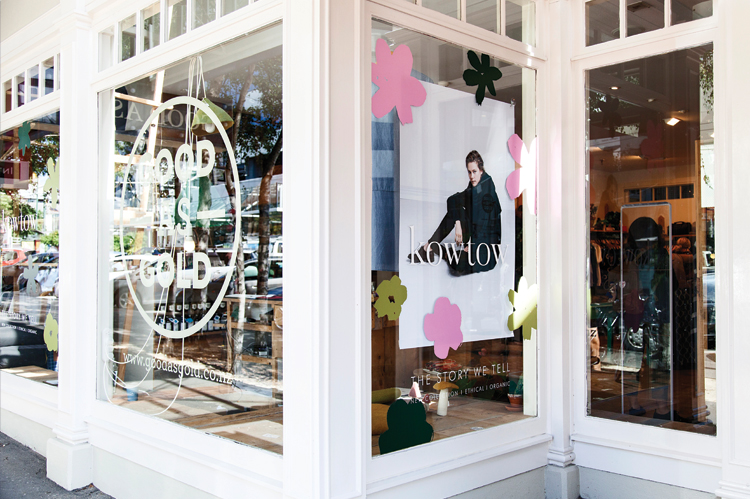
Since then, Kowtow has gone from strength to strength internationally and locally. The brand is stocked everywhere from New York to Copenhagen and Gosia now has her sights set on Tokyo. Fourteen staff work from a spacious workroom on Wakefield Street, and with plans to hire more staff, she says they’ve almost outgrown the space they moved into less than two years ago.
With its Scandi-meets-Kiwi aesthetic and fair-trade, ethically and sustainably produced organic cotton designs (such buzzwords these days that Gosia tends to downplay them), Kowtow appeals to a broad cross-section of consumers. “I’m Polish and Polish people are really eager to please, which is probably why I’ve created this thing that works across so many different markets.”
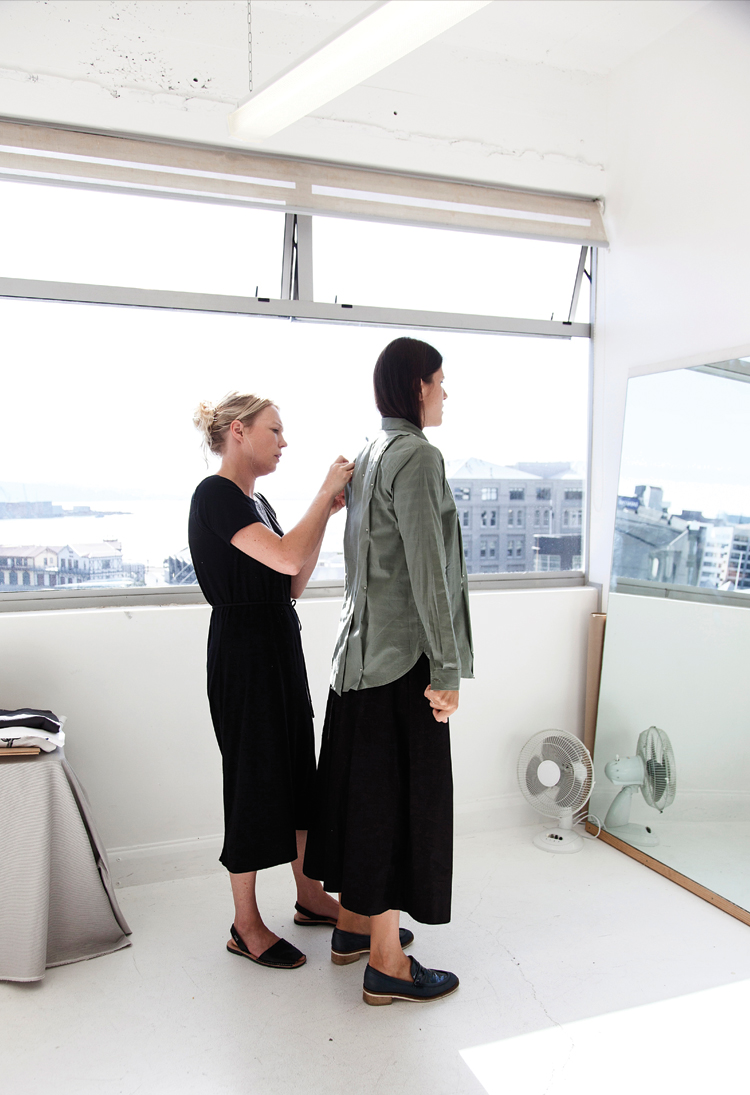
Gosia also attributes her formidable work ethic to her Polish roots, but as driven as she is, she insists she’s very much a ‘lifestyle’ person. “There’s got to be a reason why you’re doing it all,” she says. “And it can’t just be work.” Gosia lives at the edge of a marine reserve on Wellington’s south coast and recently watched a pod of dolphins from her window.
“That’s a sight you don’t get sick of,” she says. But while she loves the local landscape, she confesses that what’s happening overseas inspires her more than what’s going on here. “Thanks to the internet we live in this world where our actual location is irrelevant.”
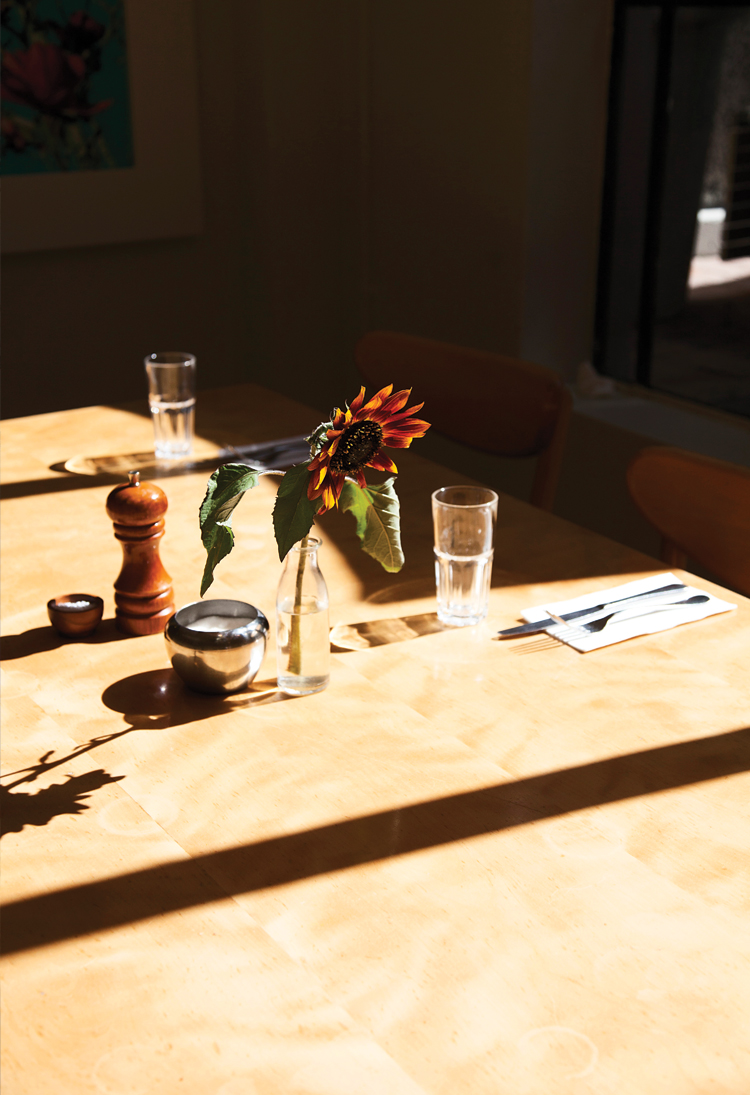
One thing Gosia does love about the city is that there’s only one hub. “Everything is two minutes away,” she says, as we walk across the road to Nikau Café at the City Gallery (which, incidentally, has been on everyone else’s ‘must-visit’ list this week).
She rates the team at Nikau because “they’re real foodies” but having worked for them as a teenager, she’s only just started coming back. “I used to turn up for my shifts so hungover,” she remembers. “So for the longest time I avoided the place thinking they must hate me. I came here once for a birthday party and was literally hiding behind my hair and my friend was like, ‘they don’t give a shit, it’s been 10 years!’”
Also nearby is Good as Gold, where Kowtow sells well, so I ask the manager, Israel Elkington, why that is. “It appeals to a very broad demographic. From students, to out-of-towners, to the cool, older, Iris Apfel type,” he says. I ask Gosia how long Good as Gold has been a part of the Kowtow story. “Oh, they’ve stocked me forever,” she laughs. “Since way back when I was weird!”


